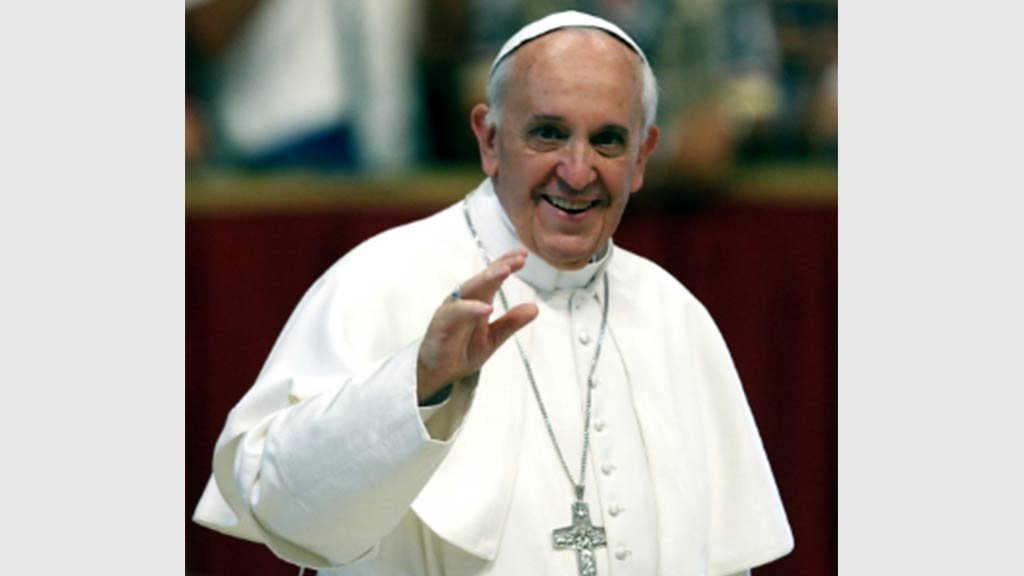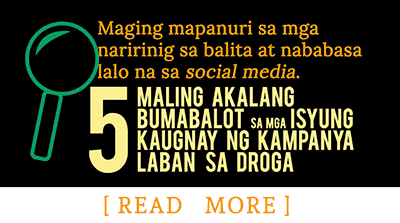The Philippine Misereor Partnership Inc. (PMPI) celebrates joyously the release of Laudato Si, the Pope’s latest encyclical on environment and climate change. The document highlighted that climate change is real; a global problem with grave implications, and one of the principal challenges facing humanity – the people in general and especially leaders in governments. Yet, the same document provided hope that each one of us, are even more powerful when united, and can make a big difference in creating a better reality for our generation and the next.
“We are jubilant. We thank Pope Francis because the document echoes and validates our desires and calls for effecting change in our society – from protection of the environment to uplifting the everyday life of our poor people. To hear the Pope say that we are at the brink of consuming the earth’s resources, but still a long way to eradicating poverty should serve as a wake-up call for all”, said Ms. Yolanda Esguerra, National Coordinator of PMPI.
She further said that, “the Pope being a man of faith and integrity, lending a moral voice to combat global warming and the consequences of climate change can be a source of strength for people who are in the receiving end of the impact of climate change. Likewise, this pronouncement is timely and extra special in the light of the current negotiation of countries on climate change in Paris this coming November.”
Fr. Edwin Gariguez, Executive Secretary of the CBCP-NASSA and PMPI Co-Convenor said that, “’to hear the cry of the earth and the cry of the poor,’ as a new ecological approach is appropriate in dealing with the current ecological crisis. It brings home the point that social justice is primordial in the climate change discourse. Violating the “rights” of the environment also means violating the very rights of the poor. Worldwide, it is acknowledged that the poor (developing) and island countries like the Philippines are among the most vulnerable to climate change because they have extremely low capacity and resources to protect themselves from its adverse impact despite their miniscule contribution to climate change,” Fr Gariguez added.
Ms. Baby Llavan, Executive Director of Antique Human Development of Panay and Co-Convenor from the Visayas said that the publication is very timely for the 2016 national election. Pope Francis is strongly challenging politicians across the globe to decisively put forward and implement policies that would help minimize, if not totally reverse, the impact of climate change. The Pope calls on the reduction of fossil fuel use, which is recognized as the main contributor to changes in climate and for rich countries to take on the responsibility of ensuring that poor countries can adapt to the climate change’s adverse impact. He boldly stated that leaders should put effort to protect and improve our world by transforming today’s political and structural powers into something that will ensure sustainable development of human race and the environment.
Ed Garingan, PMPI Project Officer for Anti-Mining Campaign believed that the core of the environmental encyclical is the call for change in our perspective of the environment, our home. “To me this is a critique of how people, businessmen and world leaders who look at the environment in a very utilitarian way – Economics over Ecology. Profit over Needs. Businesses over Communities.” Garingan added. The papal encyclical is proposing a change in paradigm. Although not directly addressing the issue of mining, the Pope emphasizes that humans need to slow down in producing and use of technological products that require metals derived from mining. He calls for a change of lifestyle, consumption and production pattern that is more sustainable.
The encyclical is comprehensive and integrative. It drew heavily from the faith tradition, the social and political context, and even from the technical scientific perspective, Sr. Cres Lucero of the Task Force Detainees of the Philippines (TFDP) and PMPI Co-Convenor from Luzon said. She expressed gratitude when Pope Francis, despite the grave problem confronting the world, is able to recognize seeds of hope through activities like developing alternative energy sources and the efforts of many communities and civil society organizations to help reverse and soften the climate change impact. He calls unto everyone to make things better and as ‘human beings, while capable of the worst, are also capable of rising above themselves, choosing again what is good, and making a new start’. “Moreover, he is telling the world upfront that there is power in each of us to make things better; that an individual can do so much,” stressed Sr. Cres.
Laudato Si is definitely good news not only to organizations like us but also to the rest of the world as taking care of the environment is everyone’s business. It challenges the core of our beings and once more highlights the human’s role as stewards of creation. Like what Pope Francis stated in his publication, “protecting creation is first and foremost a moral and religious issue. It is a response to God’s ancient request that we as human beings should preserve, protect, and sustain creation,” said Roldan Gonzalez, Executive Director of GITIB and PMPI Chairperson and Co-Convenor from Mindanao.

